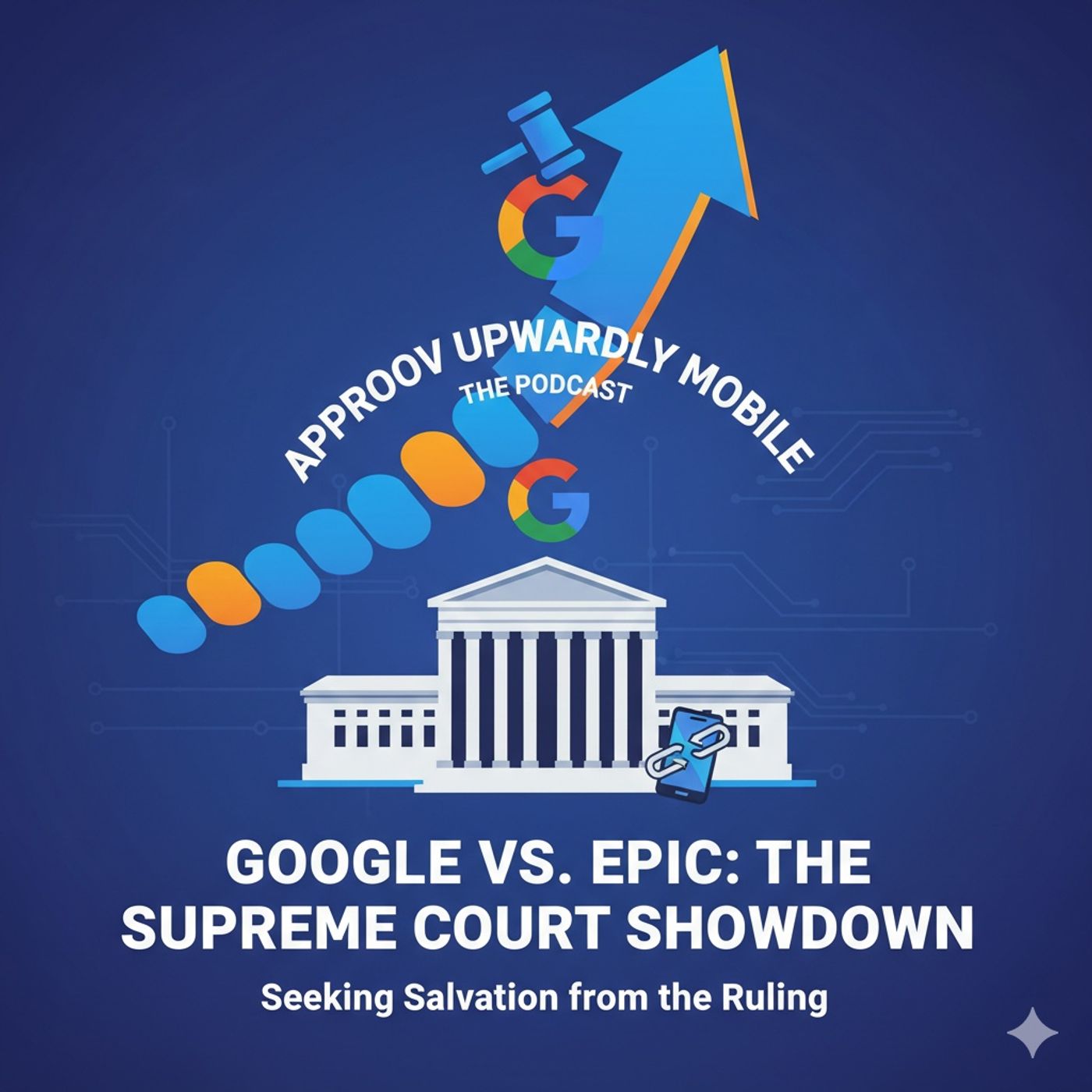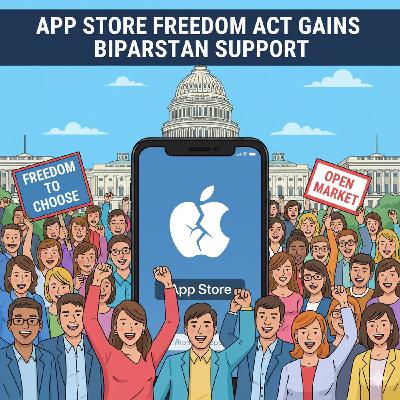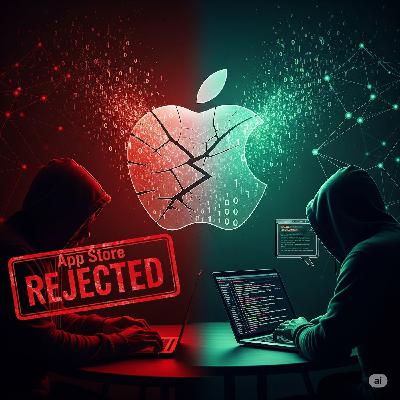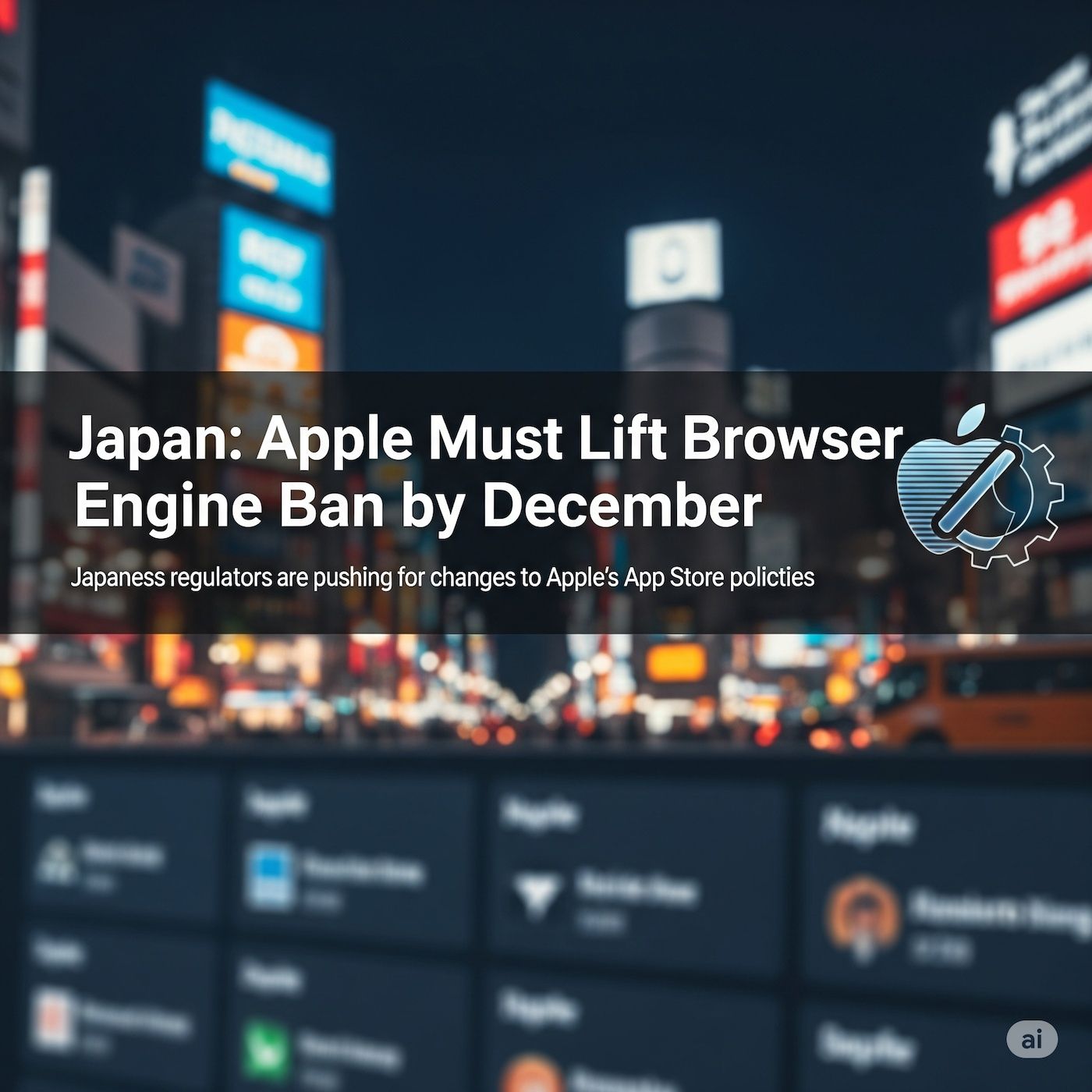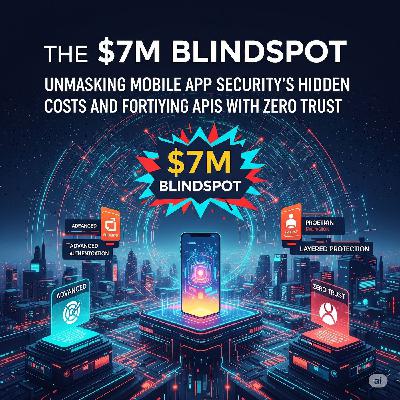Google's Legal Gauntlet: Antitrust Battles and the Future of the App Ecosystem
Update: 2025-09-26
Description
Google's Legal Gauntlet: Antitrust Battles and the Future of the App Ecosystem
This week on Upwardly Mobile, we dissect the flurry of major legal decisions facing Google in September 2025, from its desperate plea to the Supreme Court to halt the Epic Games injunction to the final ruling in the federal search monopoly case. We explore the massive shifts coming to the Android app ecosystem and Google's mandated business practice changes. Episode Notes September 2025: A Critical Month for Google's Antitrust Defense Google is challenging two massive antitrust rulings simultaneously, initiating what the sources describe as its "last hope" to maintain control over core business functions. Part 1: The Epic Games Showdown at the Supreme Court Google has asked the U.S. Supreme Court to intervene and pause the injunction it received following a major legal loss to Epic Games in October 2024. The company is seeking a decision on the stay by October 17, just days before the injunction is scheduled to take effect around October 20 or 22. The injunction, upheld by the Ninth Circuit Court of Appeals, requires Google to make several fundamental changes to the Google Play Store and the Android app ecosystem:
🛡️ Sponsored by Approov
As discussions around third-party app stores and sideloading intensify due to the Epic v. Google injunction, the need for robust mobile app security is paramount. Approov provides essential security solutions for developers navigating these new challenges. Approov offers mobile app attestation solutions that allow developers to safely distribute mobile apps through third-party app stores by significantly mitigating the primary risks associated with sideloading, such as malware, app tampering, and fraudulent API use. Approov verifies both the integrity of the app and the device environment, ensuring that only genuine, unmodified app instances—regardless of installation source—can communicate with backend APIs. Approov's system works across Android, iOS, and HarmonyOS. Learn how Approov secures your APIs and mobile apps against evolving threats related to sideloading and third-party distribution: [approov.io] Relevant Links (Source Material)
This week on Upwardly Mobile, we dissect the flurry of major legal decisions facing Google in September 2025, from its desperate plea to the Supreme Court to halt the Epic Games injunction to the final ruling in the federal search monopoly case. We explore the massive shifts coming to the Android app ecosystem and Google's mandated business practice changes. Episode Notes September 2025: A Critical Month for Google's Antitrust Defense Google is challenging two massive antitrust rulings simultaneously, initiating what the sources describe as its "last hope" to maintain control over core business functions. Part 1: The Epic Games Showdown at the Supreme Court Google has asked the U.S. Supreme Court to intervene and pause the injunction it received following a major legal loss to Epic Games in October 2024. The company is seeking a decision on the stay by October 17, just days before the injunction is scheduled to take effect around October 20 or 22. The injunction, upheld by the Ninth Circuit Court of Appeals, requires Google to make several fundamental changes to the Google Play Store and the Android app ecosystem:
- Open the Play Store: Google must allow users to download and use third-party app stores for a period of three years.
- External Billing: Google is no longer allowed to force developers to use its billing system; developers must be allowed to include external links in apps, enabling users to bypass Google’s billing system.
- End Pre-Install Deals: Google can no longer make deals around pre-installing the Play Store on phones.
- No Divestiture of Chrome/Android: The judge denied the Department of Justice's proposal to force Google to sell its Chrome browser or divest the Android operating system, ruling that the government had "overreached".
- End Exclusive Deals: Google is no longer permitted to strike exclusive deals around the distribution of search, Google Assistant, Gemini, or Chrome. For example, Google cannot require device makers to pre-load its apps in order to gain access to the Play Store.
- Data Sharing: Google must share some of its search data with competitors going forward to narrow the "scale gap" created by exclusive distribution agreements. (Google is not required to share data related to its ads).
🛡️ Sponsored by Approov
As discussions around third-party app stores and sideloading intensify due to the Epic v. Google injunction, the need for robust mobile app security is paramount. Approov provides essential security solutions for developers navigating these new challenges. Approov offers mobile app attestation solutions that allow developers to safely distribute mobile apps through third-party app stores by significantly mitigating the primary risks associated with sideloading, such as malware, app tampering, and fraudulent API use. Approov verifies both the integrity of the app and the device environment, ensuring that only genuine, unmodified app instances—regardless of installation source—can communicate with backend APIs. Approov's system works across Android, iOS, and HarmonyOS. Learn how Approov secures your APIs and mobile apps against evolving threats related to sideloading and third-party distribution: [approov.io] Relevant Links (Source Material)
- Epic Games Lawsuit: Coverage regarding Google’s request for a Supreme Court stay and the opening of the Play Store (as reported by Engadget, Thurrott.com, The Verge, and Reuters).
- DOJ Monopoly Case: Reporting on Judge Amit Mehta’s final ruling, which denied the divestiture of Chrome but mandated changes to Google’s search distribution and data sharing practices (as reported by Engadget).
- Security Solutions: Information on mobile app attestation and security best practices for apps distributed through third-party channels.
Comments
In Channel

